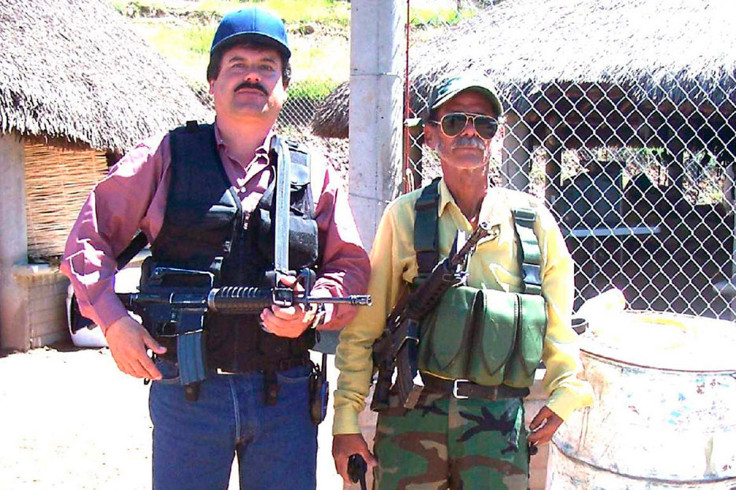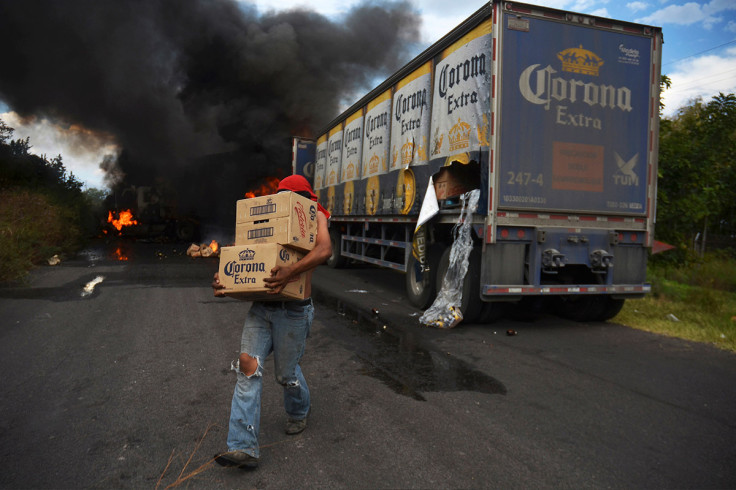Joaquin "El Chapo" Guzman Arrest: What Next for Mexican Drug Cartels?

After Mexican top drug lord Joaquin "El Chapo" Guzman was arrested on February 25, the war on drug cartels has not eased, contrary to the expectations of many, and the authorities still have some major challenges to face.
El Chapo was the leader of drug cartel Sinaloa, which is considered "the most powerful drug trafficking organisation in the world" by the US Intelligence.
Drug cartels in Mexico systematically rape, kidnap, torture and execute people and fight against each other over the hegemony of the Mexican territories and the control of drug trafficking.

With the arrest of El Chapo and another major drug lord, "El Tio" Dionicio Loya Plancarte, leader of the Knights Templar, the war among these criminal groups might descend – even if just temporarily- into a stalemate, preparing the path for aspiring gangsters planning their rise.
On the day Guzman was arrested, unidentified armed men reportedly killed 20 people, including women and children, in the small village of Linda Vista in Guerrero state, the BBC reported.
The exact motivation for the attack is unclear but according to some reports the villagers were forming their own "self-defence unit" and a local criminal gang decided to leave a brutal and uncompromising message.
"There is a feeling of uncertainty, a worry of what could come next," journalist and author Javier Valdez told Time magazine.
"A lot of people here have no faith in politicians or the system that gives them nothing. Chapo is seen as a success story."
"The triumph of the Peña government in detaining El Chapo shouldn't be underestimated," columnist Leo Zuckermann wrote in the Mexico City newspaper Excelsior.
There will be an increase in homicides, kidnappings and extortion in the short run.
"But the question that should interest us more is whether the arrest will help stop the violence in this country or not. I fear that the answer isn't promising. In fact, the opposite could happen — that is to say, that there will be an increase in homicides, kidnappings and extortion in the short run."

President of Mexico Enrique Peña Nieto's team expressed concern about the fragmentation of leaderless cartels, as this results in the creation of small groups who are "more violent and much more dangerous", according to Interior Minister Miguel Angel Osorio Chong.
"As the cartel reorganises, some of its leaders will attempt to take advantage of the shuffle to reposition themselves higher," said Martin Barron Cruz, a security expert at Mexico's National Institute of Criminal Sciences, the Washington Post reported.
"If they're blocked, it could produce a schism."
The presumed new leader is Ismael "El Mayo" Zambada, a longtime partner who ran the cartel during Guzman's earlier incarceration from 1993 to 2001, when he escaped, the Washington Post continued.
According to Duncan Wood, director of the Mexico Institute at the Woodrow Wilson Center in Washington, DC, "the Sinaloa organisation will continue to function much as before."
"It is even speculated that Guzman had become more of a figurehead in recent years and was not responsible for managing the business side," Wood said. "However, if the Mexican government goes after the number two, Zambada, then that could cause a significant disruption in the operations of the cartel."
With El Chapo in jail, the Mexican authorities have probably achieved a bit more of credibility in Mexicans' eyes; however, the myriads of drug cartels and the escalating violence are still big social plagues that have not yet been tackled.
© Copyright IBTimes 2025. All rights reserved.




















